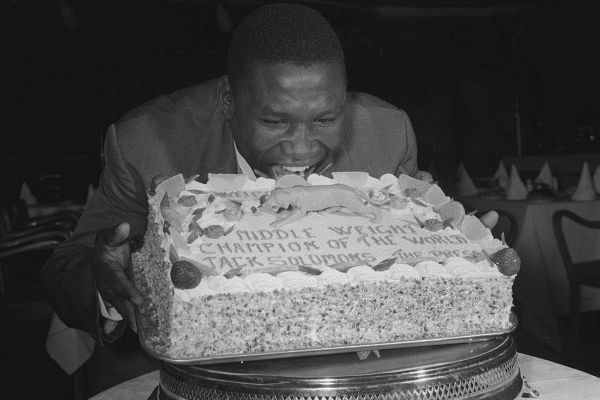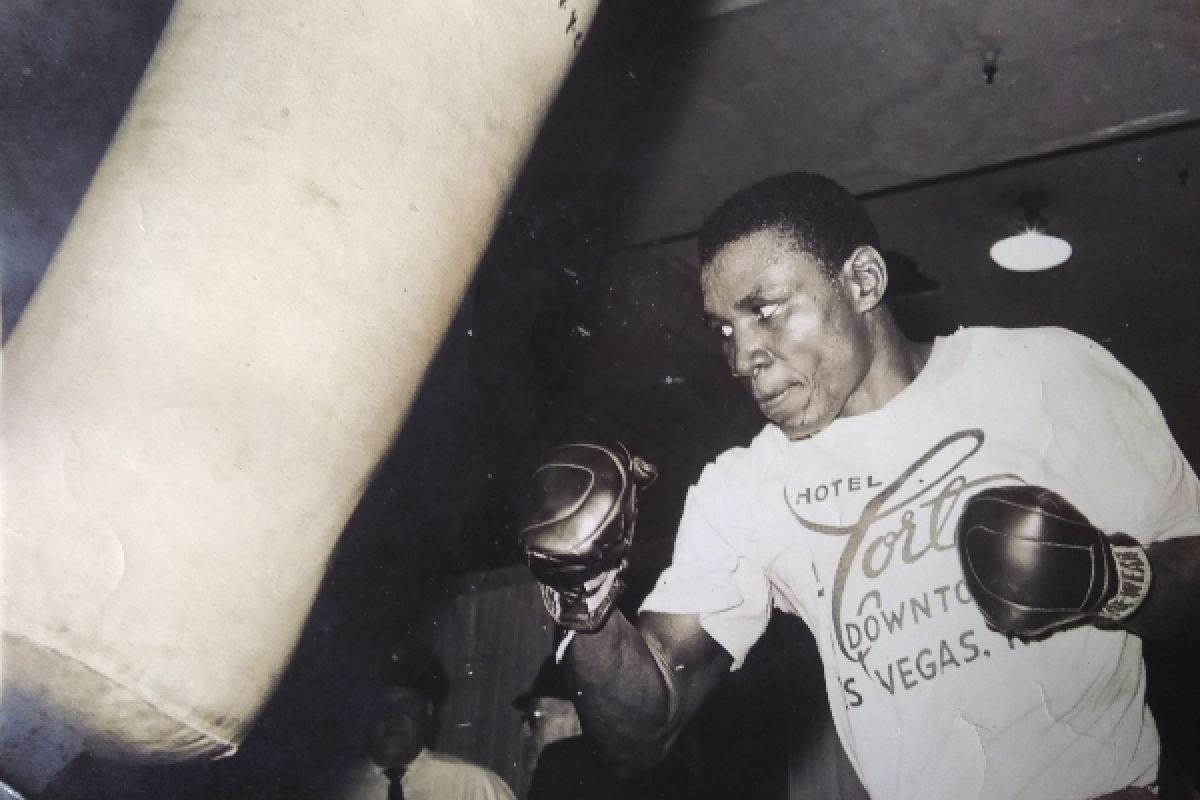Fifty years after the death of Dick Tiger, Emeka Chigbu talks to the son of the late sporting legend about boxing, Biafra, and how the sportsman’s political views robbed him of a place in the history books.
Nigerians may claim the British heavyweight champ Anthony Joshua as their greatest ever boxing star. In reality, though, that title belongs to another sportsmen, with an equally disputed nationality: Richard Ihetu.
Popularly known as Dick Tiger, Ihetu rose from very humble beginnings trading empty bottles in Nigeria's old Eastern province, to the pinnacle of the boxing world in the 1950s and 60s, conquering both the middleweight and light heavyweight division.
Born in 1929 in Nkwerre-Amaigbo in today’s Imo State, Ihetu moved with his family to the ancient city of Aba, where he grew up.
As a young man his interest in boxing was sparked after Gordy Uzoaro formed a boxing club in the city, which Ihetu joined, quickly excelling in the sport. Richard Ihetu's trajectory in boxing got a boost when he came in contact with renowned British boxing scout and promoter Bobby Diamond, who propelled the young Ihetu from his adopted home of Aba to Calabar, Lagos and finally London. In his path lay several boxing titles, culminating in the British Commonwealth Middleweight Champion belt.

Ihetu fought over 80 professional bouts, notching up 60 wins, including 27 by knock-out, as well as three draws and 19 losses.
It led Ring magazine to name him Boxer of the Year in 1962 and 1965 while the Boxing Writers’ Association of America declared him Fighter of the Year in 1962 and 1966. World fame, surely, beckoned.
In 1962, Dick Tiger moved from the Commonwealth Middleweight title into the World Middleweight division and won the World Middleweight title after beating Gene Fuller. In another feat of extraordinary ability, he moved from the middleweight into the light heavyweight division in 1966, and won the World Boxing Association Light Heavyweight title when he defeated Jose Torres.
But despite rising to the top of his sport at a time when a newly independent Nigeria was trying to make a name for itself on the world stage, the Easterner found himself shunned by his fellow Africans.
In the heat of the Nigeria-Biafra conflict, Dick Tiger switched allegiance from Nigeria, under whose flag he had fought in the past, identifying with his Igbo race and the breakaway republic of Biafra instead. He was appointed a Biafran ambassador by the separatist government and began to march to ring side bearing Biafra's rising sun tricolour.
The boxing legend's oldest son, Richard Ihetu Jr, described the move as a ‘diplomatic coup’ by his father, which he did to highlight the 'injustice done to the Igbo' and other Easterners during the Nigeria-Biafra civil war.
A proud Biafran, his father returned his CBE to Britain, accusing the former colonial power of being unjust in its support of Nigeria, which had been complicit in ‘genocide against his Igbo compatriots residing in their south eastern Nigeria homeland' according to his son.
It was during the Biafra war, in 1968, that Dick Tiger lost his light heavyweight title to Bob Foster in a knockout – the first knockout loss of his boxing career. Many attributed the loss to the pressure he was under as a result of the conflict. But, according to Ihetu Jr, his father acknowledged that the ‘better fighter’ won on the night.
Despite such setbacks, Ihetu, who died aged 42 in December 1971, achieved heights no other African has done in professional boxing.
He was the first African to be inducted into the international boxing hall of fame. And in 2002 was voted one of the greatest fighters by Ring magazine, coming in 31st, ahead of global icons including Joe Frazier, Lennox Lewis and Mike Tyson.
Nigel Collins, editor-in-chief of Ring said: ‘If there was ever a neglected hero who deserved a biography, it is former middleweight/light heavyweight champion Dick Tiger.’

Though he attained global fame as a young fighter, Ihetu was a quintessential family man, with a wife and eight children.
And while he never earned big money like today's fighters – Ihetu worked as a security guard at the Metropolitan Museum of Art in New York after retiring from boxing – he managed to develop a portfolio of investments before the outbreak of the Nigerian civil war and eventually used that money to move back to the city where his boxing career began. Some members of his family still reside in Aba today, including his son Richard Ihetu Jr, who laments that the city his father loved so much is yet to recognise and honour his boxing legacy.
He told NewsAfrica that his father would be disappointed by the ‘poor state of boxing and sports facilities’ in Aba.
Fighters of Nigerian origin may be making waves in global boxing today, but potential home-gown boxing stars have been left largely left 'undiscovered', Ihetu Jr said. 'Boxing clubs no longer exists in the region and up-to-date sports facilities are completely lacking’.
He questioned how many how many more Dick Tigers the nation could have produced had it invested in young sporting proteges, like the UK did when it propelled Joshua to success as part of its Team GB Olympics squad. Adding that with more than 70 per cent of Nigeria’s 200 million population aged between 18 to 35, the country has the potential to more than punch above its weight on the international stage.




